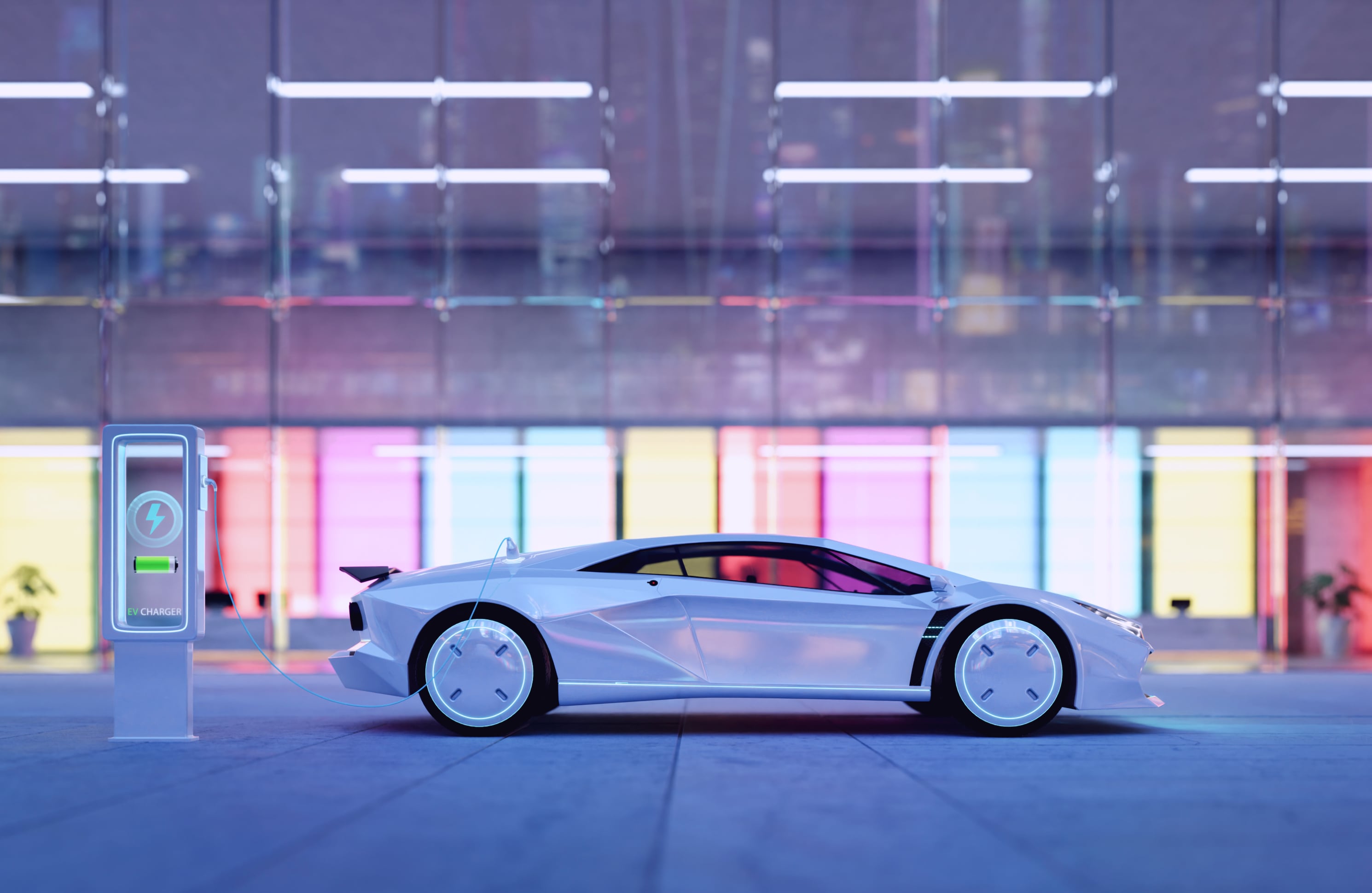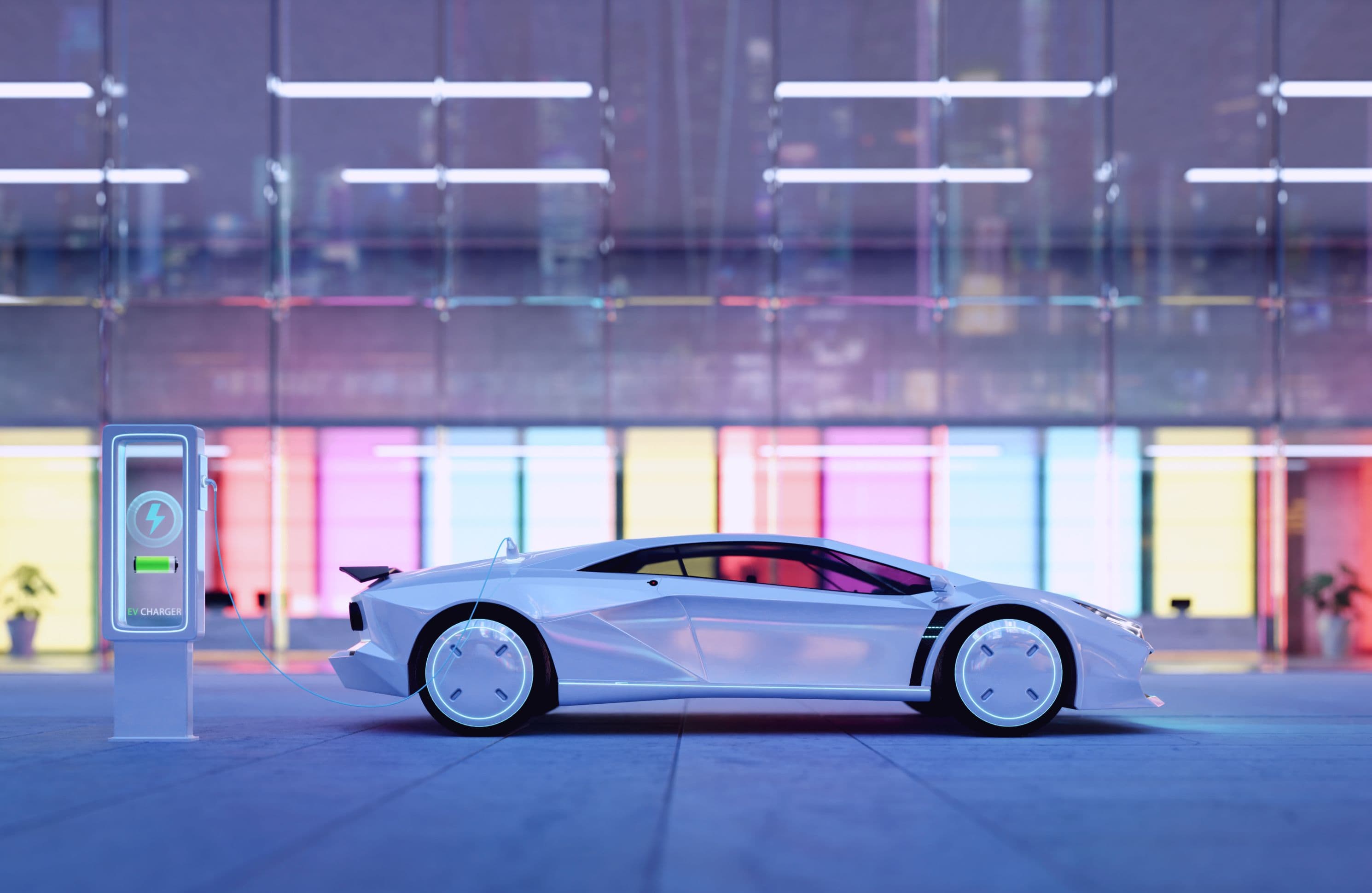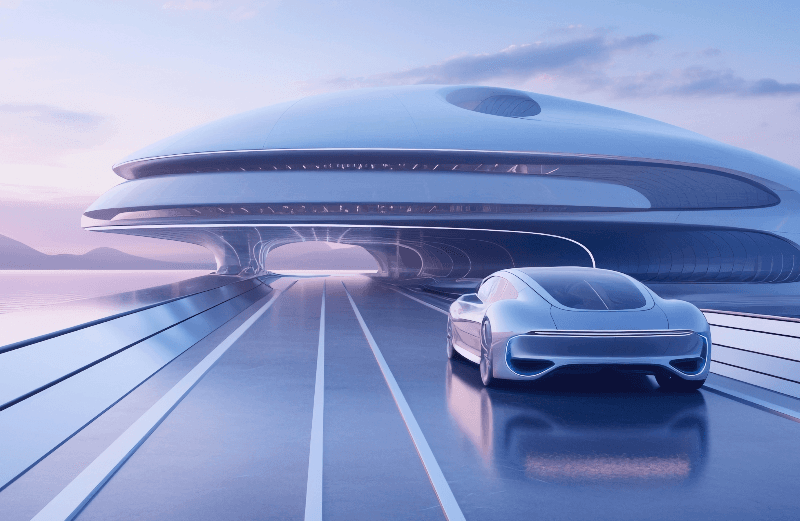

Why digital innovation is critical for premium EV market revival
NOV. 27, 2024
2 Min Read
Digital innovation is the electric vehicle’s new charging station, transforming luxury EVs from products to personalized experiences.
After years of steady growth, the premium electric vehicle (EV) market has hit a speed bump. Sales growth in the high-end segments, which once fueled the overall expansion of battery electric vehicles (BEVs), has started to decline in recent years.
This slowdown signals a turning point for automakers: high-end buyers’ expectations have changed, and merely refining the product is no longer enough.
Instead of seeing this as a setback, forward-thinking manufacturers can view it as an opportunity to fast-track their digital transformation. AI in the automotive industry and real-time data offer a way to break out of this slump and capture the attention of an expanding pool of potential buyers.
Premium EV buyers demand more than just sustainable luxury
The modern high-end EV buyer is a discerning one. They’re looking for more than an electric car—they want an experience that reflects their values, preferences, and lifestyle. These consumers don’t want to sacrifice the performance, comfort, and exclusivity they associate with high-end brands.
Meeting these expectations is no easy feat for automakers. Range anxiety is a real concern, especially for those accustomed to long-distance travel and spontaneous road trips. A convenient charging experience, with readily available charging stations and fast charging capabilities, is essential for alleviating these worries.
High-end buyers also expect their EV to provide performance that matches or surpasses traditional vehicles. Anything less falls short of their expectations for sustainability and excitement.
Concerns around battery degradation and resale value pose additional hurdles. To win over these buyers, automakers need to be transparent about battery durability, offer comprehensive warranties, and consider creative solutions like battery leasing or upgrade options.
Digital technologies hold the key to overcoming market barriers
True digital transformation in the automotive industry means leveraging advanced technology to address business challenges and gain an edge. In the premium EV space, this approach is crucial for overcoming the barriers high-end buyers face and delivering an exceptional customer experience.
With a new wave of luxury EV buyers emerging, automakers have a prime opportunity for growth—if they can adapt to meet evolving expectations.
Data-driven design and AI analysis unlock superior product-market fit
Building a desirable EV requires a deep understanding of your target buyer and a data-driven approach to design and customization. Analyzing consumer driving patterns and regional variations enables automakers to fine-tune their offerings to suit specific market segments.
This could involve offering different battery configurations to meet varying range requirements, as well as customized interiors with luxurious materials that appeal to discerning buyers.
AI-powered market analysis adds another layer of precision by examining trends, competitor moves, and customer feedback to reveal unmet needs. Manufacturers can use these insights to deliver vehicles that align more closely with consumer expectations.
Moreover, the use of digital twins—virtual replicas of physical vehicles—allows automakers to test features and simulate real-world driving conditions before any physical prototype is made. This accelerates development, reduces costs, and brings cutting-edge EVs to market faster.
Personalized digital experiences drive premium EV sales success
A blanket approach to marketing doesn’t have the same punch that it used to. To get the attention of premium EV buyers, automakers must embrace AI and other emerging technologies that deliver personalized and engaging experiences.
AI-driven customer segmentation is a crucial piece of this strategy. AI can sift through customer data to identify unique segments, allowing automakers to craft marketing messages that speak directly to individual preferences.
Whether through targeted ads, personalized emails, or interactive content, these customized efforts ensure buyers feel recognized and valued.
But personalization doesn’t stop at messaging—it’s also about how the product is presented. Virtual and augmented reality take these tailored experiences to the next level by offering immersive product demonstrations.
Potential buyers can explore the car’s interior and customize features, all from the comfort of their homes. This creates an engaging, memorable experience that sparks interest and moves consumers closer to making a purchase.
Social media and influencer collaborations offer yet another powerful way to reach new audiences. Partnering with well-known voices in the automotive or sustainability spaces helps automakers connect with new customer segments and generate buzz around their EV offerings.

Virtual experiences and blockchain transform traditional sales model
For premium buyers who value transparency and simplicity, the traditional car-buying process—with its haggling and pressure—is more of a hassle than an experience.
Digital transformation offers a chance to rewrite this narrative, creating an interactive, seamless journey that’s truly centered on the customer.
Virtual reality test drives and configurators with immersive experiences can replace static brochures. Customers can get a feel for how the vehicle handles without having to step foot in a dealership.
In a similar vein, blockchain technology takes care of one of the biggest pain points—pricing. No more back-and-forth negotiations. Instead, blockchain ensures secure, transparent pricing, giving buyers complete confidence in the fairness of their purchase while building trust from the start.
When it comes to the nitty-gritty of answering questions and guiding buyers through finances, AI-powered chatbots handle the heavy lifting. This frees up sales teams to focus on meaningful, personalized interactions and elevate the entire purchase experience.
Blockchain and IoT create new value retention opportunities
Resale value remains a major concern for premium EV buyers. Automakers can tackle this challenge by leveraging advanced technologies to boost the long-term appeal of electric vehicles.
Blockchain offers a solution by acting as a vehicle’s digital passport. It provides a transparent, tamper-proof record of everything—from maintenance and repairs to battery health and ownership history.
When it comes to vehicle care, IoT-enabled predictive maintenance takes it to the next level. With real-time sensors monitoring key components like the battery, automakers can detect issues before they escalate into costly repairs.
This proactive approach extends the lifespan of the car, giving buyers peace of mind that their EV is consistently performing at its best and maintaining its value over time. And, for those not ready to commit to ownership, digital platforms offering flexible leasing and subscription models provide an attractive alternative.
These platforms allow buyers to experience the benefits of an EV without the long-term obligation, making electric vehicles more accessible to a broader audience.
Connected technologies enable premium ownership experience beyond the vehicle
For premium EV buyers, the ownership experience extends beyond the vehicle itself. They want an elevated experience that blends luxury with technology.
Connected car platforms serve as the backbone of this enhanced experience, delivering over-the-air updates that keep vehicles fresh with new features and capabilities. From performance improvements to upgraded safety systems and entertainment options, these updates keep the car relevant and exciting while maintaining its value over time.
AI takes the experience a step further with optimized charging and route planning, saving drivers time and money by tailoring charging schedules based on energy costs and driver preferences. It also reduces range anxiety by suggesting the most efficient routes, with the bonus of highlighting scenic paths or points of interest along the way.
Gamification adds an element of fun, turning eco-friendly driving into a rewarding challenge. Drivers earn points, badges, or exclusive perks for sustainable habits, making green driving an engaging part of the ownership journey.
Digital integration with smart home systems further enhances convenience. Syncing your EV with your smart devices allows you to manage charging, climate control, and even entertainment settings right from your smartphone or smart home assistant.
This creates a seamless connection between the car and home, making the ownership experience feel effortlessly intuitive.

Strategic digital transformation requires systematic approach
Successful digital transformations hinge on a clear strategy and thoughtful execution. Here are some tips for your journey.
- Assess current digital capabilities: Begin with a thorough audit of your digital infrastructure. Identify the strengths, gaps, and areas that need improvement so you can focus your efforts where they’ll have the most significant impact.
- Identify priority areas for digital transformation: Zero in on the areas where digital tools can drive the most value—whether it’s enhancing product development, improving the customer experience, or boosting operational efficiency.
- Build cross-functional teams and foster a digital culture: Silos are the enemy of innovation. Break them down by creating teams that pull from different departments. Foster a culture that embraces experimentation and a “fail fast, learn faster” mentality.
- Partner with tech companies and startups: Accelerate your transformation by teaming up with technology firms and startups. These partnerships can give you access to state-of-the-art technologies and fresh expertise.
Anticipating future trends
Emerging technologies are reshaping what it means to own an electric vehicle, and staying competitive means anticipating the next wave of innovations.
5G
One of the most significant changes on the horizon is the integration of 5G technology. With ultra-fast data transmission, 5G will redefine connectivity for EVs, enabling everything from real-time traffic insights to seamless communication between vehicles and the cloud.
Autonomous driving features
Autonomous driving features are also set to redefine the luxury EV market. As this technology evolves, luxury EVs will become mobile spaces for work, entertainment, and relaxation.
Digital marketplaces
Digital marketplaces are poised to create dynamic ecosystems for EV owners. These platforms could offer seamless access to services like charging, maintenance, insurance, and entertainment, enhancing the EV ownership experience and driving further adoption.
Embracing the digital EV ecosystem
Digital solutions give premium EV makers the tools to address both current and future challenges. Whether it’s enhancing product-market fit, optimizing customer targeting, or elevating the ownership experience, these technologies provide the flexibility needed to stay competitive. At the same time, they open the door to new growth markets.
But the window of opportunity won’t be open for long. Manufacturers that hesitate risk being left behind. Now is the time for manufacturers to integrate digital into every aspect of their operations, redefining the customer journey and delivering an EV experience that exceeds expectations.
Unlock your EV innovation roadmap.



